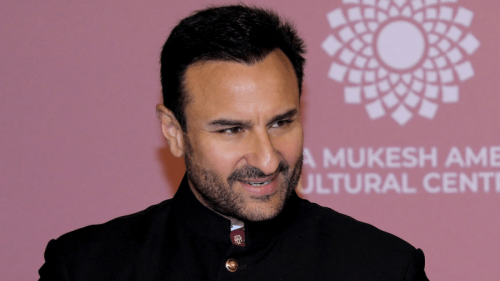THE government seems to have developed a firm belief in the efficacy of a ‘military solution’ to every malaise that afflicts state and society. No wonder, then, that the military’s footprints are increasingly visible in every area, be it policymaking or execution.
The outsourcing of core government functions has been the norm for many years now, but it has consistently failed to help bring political stability, economic sustenance or even a measure of internal security or regional peace. How will it work this time around, when the state seems to have been sucked deep into a whirlwind of all-round crises?
Historically, militaries played a major role in times when international codes and municipal laws were secondary to imperial or nationalistic ambitions. The armed forces were critical to empire-building projects, for example. They conquered foreign lands and earned glory and booty for the realm. But later, as human societies progressed through a host of evolutionary milestones — including the Enlightenment, Reformation, Industrial Revolution, political freedoms, adult franchise, and constitutionalism — the concept of a national democratic state evolved and the role of the armed forces was constitutionally confined to national security and strategic matters.
This did not mean the state’s military component became irrelevant. On the contrary, the most powerful democracies remained great military powers. However, their military was made subject to civilian control. In fact, the very nature, role and functions of the state underwent a ‘course correction’; first in Europe, and then in North America and elsewhere. The modern state is no more a mediaeval monolithic structure, but a composite of many conceptual and structural ingredients, such as fixed territorial boundaries, a representative political system, citizens as political sovereigns, the separation of powers, civilian supremacy, and a rules-based classification of institutional functions.
A rules-based, representative political order, peaceful and smooth transfer of power, and civilian control over the armed forces are now the three distinguishing features of a functional democracy. Besides the West, a host of other developing countries — particularly in Latin America and Asia — have successfully established such democratic polities.
Unfortunately, we, as a state and society, are still struggling to affect this long-due course correction. Our political and state elites continue to obsess over a rusty and disastrous model of statehood cast in Praetorian tradition. The resulting overlap of, and incompatibility between, the civil and military power centres has led to a string of conflicts and failures — constitutional, economic and societal.
Countries have both fallen and risen at the hands of their political leadership.
Our course correction became due in the 1950s, when our fledgling democracy’s core functions first began to slip from the hands of an embattled body of politicians to a well-organised military-bureaucratic power base.
True, the civilians’ failure was due to their infighting, myopia and opportunism, but the ambitious generals also played their hand well. They used the ‘Red Scare’ to win over Western patrons, and ‘Indian hostility’ to build and run a ‘security’ state. Thus, barring some ‘civilianised’ interludes, the military was able to dominate state and governance, either directly or indirectly.
However, the country has paid a heavy cost for this aberrant order. Half of it was lost to a fratricidal war, and the other half is virtually grounded with a divisive polity, broken economy, spiralling violence, and an increasingly disillusioned citizenry. It badly needs a leadership that can rise to the occasion, forge a new vision, galvanise its intellectual and political assets, and navigate society out of fear and despondency.
Alas, the mainstream leadership — which has virtually dominated national politics for more than four decades — stands hopelessly divided. Ironically, their political divisions are not rooted in some irreconcilable ideological or conceptual divergence; in fact, rival leaderships have formed an unspoken consensus on broader economic and political fundamentals. For instance, both have embraced the virtues of a neoliberal economic agenda, and both have vied to be more ‘acceptable’ to the security establishment, which they consider to be the ‘real’ fountainhead of power.
Their mutual antipathy is traceable only in the reality of their respective relationships with the establishment. While the ruling coalition is enjoying a blissful stint in power after outsourcing the system to the establishment, its principal rival, the PTI, notwithstanding its founder’s ‘revolutionary’ rhetoric, remains in a state of animated suspension. It has been keeping its doors open for some kind of rapprochement with the powers that be to get itself out of its present predicament.
Thanks to a perfidious leadership — political and institutional — the state’s physical and moral foundations are in peril. It is beset with complex institutional, structural, and identity- and faith-related problems which are beyond ‘military solutions’. It must restore its constitutional dispensation to its true form and substance. Only a genuinely representative, cleaner, accountable, and legitimate political order can usher in political stability, public security, economic progress and, above all, a fresh breed of modern-era politicians. Recycling old brands and reusable ideas won’t work. Things have gone too far.
For a start, the political leadership must bury the hatchet and focus on at least three areas of immediate concern. First, the faltering economy, which is fatally affecting the common citizen and generating anger and a sense of alienation among the people. Second, the rule of law and social justice in the country, particularly in KP and Balochistan, where people are facing the brunt of the state’s misguided policies. Last, the judiciary, which has once again come under attack. Efforts are afoot to ‘dilute’ the strength of independent judges and create a compliant and toothless court.
Lest we forget, countries have both fallen and risen at the hands of their political leadership. Our country is also standing on the cusp. Let us see whether our political leadership’s prudence and gravitas can salvage it, or if their myopia and opportunism take it under.
The writer is a lawyer and an academic.
Published in Dawn, September 13th, 2024














































Dear visitor, the comments section is undergoing an overhaul and will return soon.